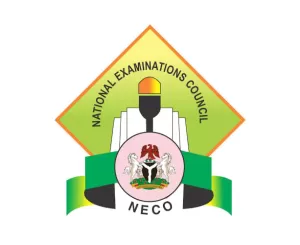Jamb Score Debate: Students React to Difficulty and Admissions

How to print your jamb admission letter for UTME & DE Candidate online
The Joint Admissions and Matriculation Board (JAMB) in Nigeria has recently stirred controversy on social media, particularly on Twitter, with users criticizing the organization’s communication style, questioning the reliability of JAMB scores, and debating the fairness of exam rescheduling policies. The debate has been fueled by a series of tweets from JAMB’s official account, which users have found to be lacking in empathy and tone-deaf. The discussions have ranged from the difficulty of exams to the competence of JAMB staff, with some users sharing their experiences and others questioning the authenticity of high JAMB scores. Despite the criticism, some users have highlighted the changes in exam difficulty over the years and the importance of not falling for scams promising upgraded scores.
The Joint Admissions and Matriculation Board (JAMB) recently found itself at the center of a heated debate among students and stakeholders regarding the difficulty of its exams and the fairness of its admission policies. This conversation was sparked by various social media posts and discussions that have been trending, particularly on Twitter.
At the heart of the debate are concerns over the fairness of JAMB’s scoring system and the perceived difficulty of its exams. Many students have expressed frustration over what they see as an arbitrary and inconsistent evaluation process. For instance, one user on Twitter highlighted that despite scoring 274 in JAMB, they were unable to secure admission into a public university due to non-indigene reasons, despite the score being considered high enough for admission into private universities. This has led to a perception among some students that the JAMB exam is more of a hurdle to overcome rather than a fair assessment of academic potential.
Adding fuel to the fire is the controversy surrounding a Babcock University student who claimed to have scored 379 in JAMB. This claim was met with skepticism and criticism from other students, who pointed out that such a high score was not listed among the top scores for that year on the official JAMB website. This incident has further fueled the debate about the credibility and transparency of the JAMB scoring system.
The debate has also brought attention to the disparities in educational opportunities and admissions processes between public and private universities in Nigeria. Some students argue that the JAMB system unfairly favors those who can afford to attend private institutions, as they are often able to secure admission with lower JAMB scores than their counterparts who aspire to attend public universities.
JAMB officials have not remained silent in the face of these criticisms. They have reiterated their commitment to fairness and transparency in the admissions process, emphasizing the need for students to focus on their studies and prepare adequately for the exams. They have also pointed out that the JAMB exams are designed to assess students’ readiness for tertiary education and are not intended to be unnecessarily difficult or arbitrary.
The debate surrounding JAMB’s exams and admission policies is a reflection of broader issues in Nigeria’s education system, including concerns about access to quality education, the affordability of higher education, and the role of standardized testing in determining students’ academic futures. As the conversation continues, it remains to be seen what changes, if any, will be made to address these concerns and improve the fairness and transparency of the admissions process.







